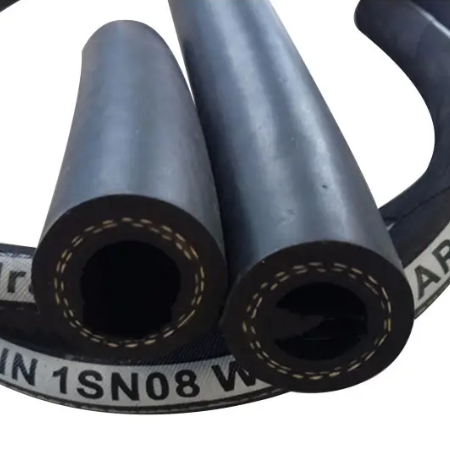335345435
Dez . 21, 2024 08:53 Back to list
Understanding JIC Fittings for Hydraulic Hose Connections and Applications
Understanding Hydraulic Hose JIC Fittings A Comprehensive Overview
Hydraulic systems play a critical role in various industries, from manufacturing and construction to automotive and agriculture. One essential component of these systems is the hydraulic hose, which is responsible for transferring fluids under pressure. An important aspect of hydraulic hoses is the fittings used to connect them, especially the JIC (Joint Industry Council) fittings. This article delves into the importance, design, and applications of hydraulic hose JIC fittings.
What are JIC Fittings?
JIC fittings are a type of hydraulic connector that ensures a secure and leak-free connection between hoses and various components in hydraulic systems. These fittings are characterized by a 37-degree flare seat, which allows for a tight fit that can withstand high pressure. The JIC fittings are made from various materials, including steel, stainless steel, and brass, which provides flexibility in application depending on the environment and the type of fluid being used.
Key Features of JIC Fittings
1. Leak Resistance One of the primary advantages of JIC fittings is their ability to create a leak-proof seal. The 37-degree flare design ensures that the ends fit snugly against each other, minimizing the risk of fluid leakage under high pressure.
2. Versatility JIC fittings come in various sizes and configurations, making them suitable for a wide range of hydraulic applications. They can be used with different types of hoses and can be easily assembled and disassembled, which simplifies maintenance and repair.
3. High Pressure Ratings JIC fittings are designed to handle high-pressure environments, making them ideal for demanding applications such as hydraulic machinery and equipment.
4. Durability Given their robust design and materials, JIC fittings are resistant to corrosion and wear, ensuring a long service life even in harsh operating conditions.
Applications of JIC Fittings
JIC fittings are used across multiple sectors, demonstrating their versatility and practicality
- Manufacturing and Industrial Machinery In factories, hydraulic systems are integral to the operation of machinery, and JIC fittings ensure that these systems function reliably without leaks
.hydraulic hose jic fittings

- Automotive Industry Hydraulic systems in vehicles, such as brake lines and power steering systems, often utilize JIC fittings for secure connections that can withstand the high pressures associated with vehicle operation.
- Agriculture Many agricultural machines rely on hydraulic systems for operating components like loaders and seeders. The reliability of JIC fittings in these systems is crucial for efficient and effective operation.
- Construction Equipment Heavy construction equipment, such as bulldozers and excavators, depend on hydraulic systems that utilize JIC fittings to handle the demanding conditions of construction sites.
Installation and Maintenance of JIC Fittings
Proper installation and maintenance of JIC fittings are crucial for ensuring the longevity and effectiveness of hydraulic systems. Here are some key steps to follow
1. Inspection Before Installation Always inspect the fittings and hoses for any signs of damage or wear. Ensure that all components are clean and free from debris.
2. Correct Torque Settings When tightening JIC fittings, it’s essential to use the correct torque specifications. Over-tightening can lead to damage, while under-tightening may result in leaks.
3. Regular Maintenance Regularly check fittings for signs of leaks and wear. It’s advisable to replace any worn or damaged components promptly to prevent hydraulic failure.
4. Fluid Compatibility Ensure that the hydraulic fluid being used is compatible with the materials of the hydraulic hoses and JIC fittings to avoid chemical degradation.
Conclusion
In conclusion, hydraulic hose JIC fittings are indispensable components in hydraulic systems across various industries. Their robust design, leak resistance, and versatility make them a preferred choice for ensuring fluid transfer under pressure. Understanding the characteristics and proper maintenance of JIC fittings is essential for maintaining the efficiency and reliability of hydraulic systems. By adhering to proper installation practices and conducting regular inspections, users can maximize the lifespan and performance of these vital components in their hydraulic applications.
-
SAE 100 R17 Black Smooth Cover Hydraulic Hose
NewsMar.07,2025
-
SAE 100 R17 Black Smooth Cover Hydraulic Hose
NewsMar.07,2025
-
SAE 100 R17 Black Smooth Cover Hydraulic Hose
NewsMar.07,2025
-
SAE 100 R17 Black Smooth Cover Hydraulic Hose
NewsMar.07,2025
-
SAE 100 R17 Black Smooth Cover Hydraulic Hose
NewsMar.07,2025
-
steel wire braided hydraulic hose
NewsMar.07,2025



